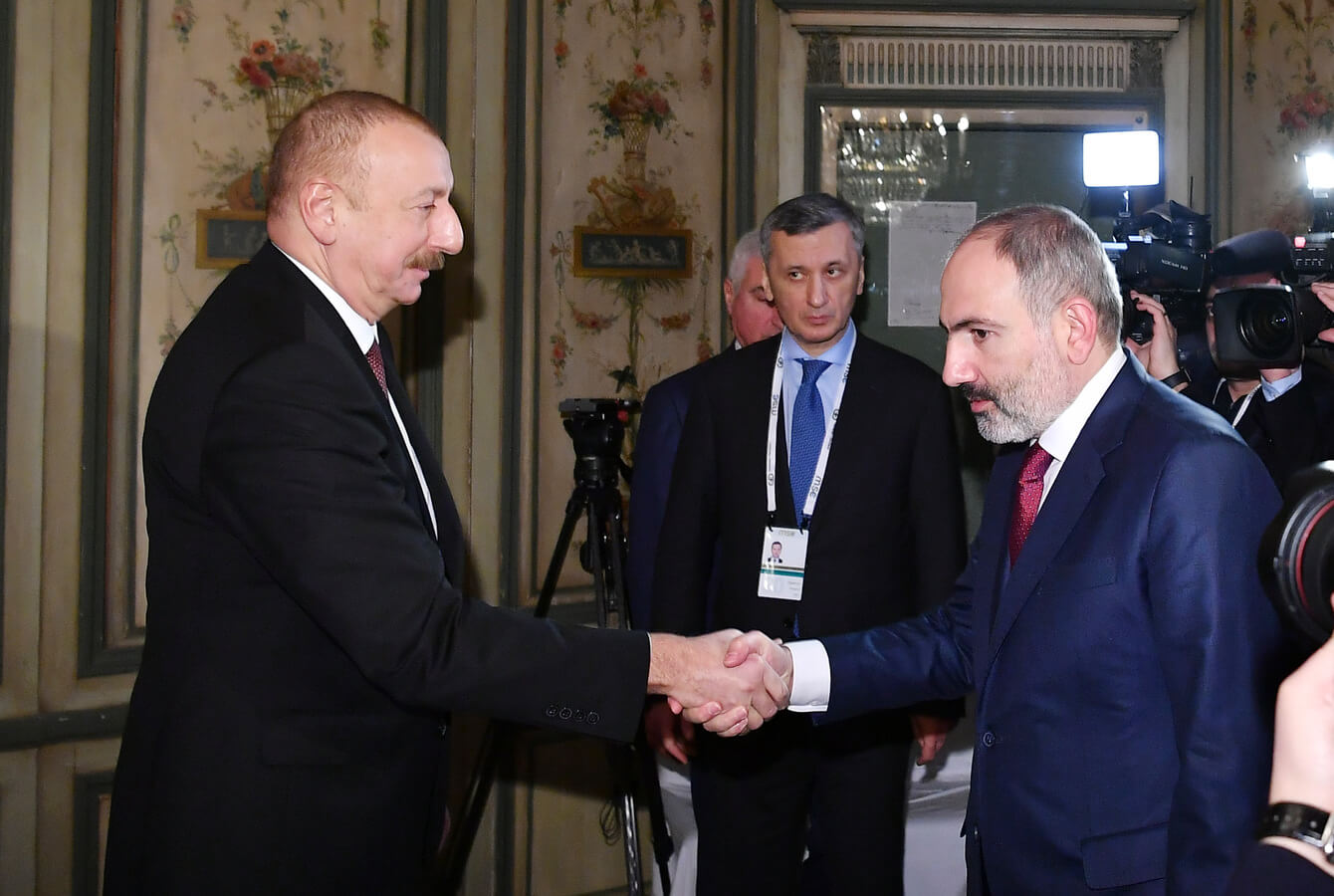More than a year since Armenia and Azerbaijan agreed to a ceasefire to end the war over the disputed Nagorno-Karabakh region, tensions continue to escalate as both countries accuse each of violating the truce. Simultaneously, however, Yerevan and Baku have expressed willingness to end the conflict and reach a peace agreement; in fact, their leaders met each other in Brussels under the auspices of the European Union (EU) earlier this month.
On March 24, Yerevan accused Azerbaijani troops of violating the line of contact and advancing into Artsakh, another name for Nagorno-Karabakh widely used in Armenia.
According to the Armenian Defence Ministry, its forces and Russian peacekeepers in the region rushed to prevent the further advancement of Azerbaijani troops and engaged in negotiations with the other side. The talks failed and a day later, authorities in Stepanakert, the de-facto capital of Artsakh, claimed that Azerbaijani forces took over a village in the city and deployed drones in the area. Two Armenian soldiers were killed in the ensuing clashes.
Furthermore, the Armenian Foreign Ministry accused Azerbaijan of trying to disrupt Artsakh’s only gas pipeline and targeting civilian infrastructure with large-calibre weapons. The Ministry alleged that Azerbaijan’s move was aimed at the “ethnic cleansing” of Armenians in the region.
Azerbaijan has rejected the claims made by Armenia as “groundless” and accused Yerevan of spreading “disinformation” and trying to “mislead the international community” and provoke tensions in the region.
Since the beginning of the year, Azerbaijan has accused Armenian soldiers of deliberately trying to start a conflict in the region. In January, Baku accused its neighbour of firing at military positions in Kalbajar. In March, the Azerbaijani Defence Ministry blamed Armenian forces for shelling Azerbaijani positions 23 times in a single day and using heavy weaponry to fire at villages in multiple cities, including Aghdam, Khojaly, and Kalbajar.
Moscow, however, has blamed Baku for provoking the clashes and violating the ceasefire, and said that it was making serious efforts to defuse tensions. The Russian Foreign Ministry demanded that both sides cease all hostilities immediately and respect the terms of the 2020 ceasefire.
The leaders of Armenia and Azerbaijan—Nikol Pashinyan and Ilham Aliyev—held talks with Russian President Vladimir Putin shortly after the events on the border to clarify their countries’ positions. Putin urged both leaders to take steps to de-escalate tensions and reach a peace treaty.
Pashinyan and Aliyev have since agreed that it was important to take steps to iron out differences. Accordingly, both leaders met in Brussels on April 6 under EU mediation and agreed to take steps to draft a new peace treaty and create a joint commission on demarcating the border.
A statement released by the European Council said that both leaders agreed to “move rapidly towards” a peace agreement and announced a series of confidence-building measures, including the restoration of all communication and the opening of railway lines.
Crucially, this was the first time Pashinyan and Aliyev have met since the war officially ended. They met in December last year in Brussels to negotiate peace. But the meeting ultimately failed to make any progress and tensions once again escalated.
More than a week since the latest meeting, neither side has yet to announce any progress made in starting negotiations. Moreover, the Russian Defence Ministry on Wednesday accused Azerbaijani troops of once again violating the line of contact and injuring an Armenian soldier in a shootout, jeopardising the progress made in the recent talks.
Armenia and Azerbaijan have been engaged in constant conflict over the breakaway region of Nagorno-Karabakh since the fall of the Soviet Union. In September 2020, they fought a devastating war that led to the worst clashes in decades, killing thousands and displacing more than 100,000 people. The fighting ended in November last year after Armenia and Azerbaijan signed a Russian-brokered ceasefire deal, which stated that Azerbaijan would remain in control of areas it recaptured from Armenia and that Russian troops would be deployed in the region to ensure that calm prevails.
Armenia-Azerbaijan Tensions Escalate Despite Agreeing to Launch Peace Process
Armenia and Azerbaijan have been engaged in constant conflict over the breakaway region of Nagorno-Karabakh since the fall of the Soviet Union.
April 15, 2022

Azerbaijani President Ilham Aliyev (L) with Armenian PM Nikol Pashinyan, Berlin, Feb. 2020 IMAGE SOURCE: AZERBAIJAN PRESIDENCY
